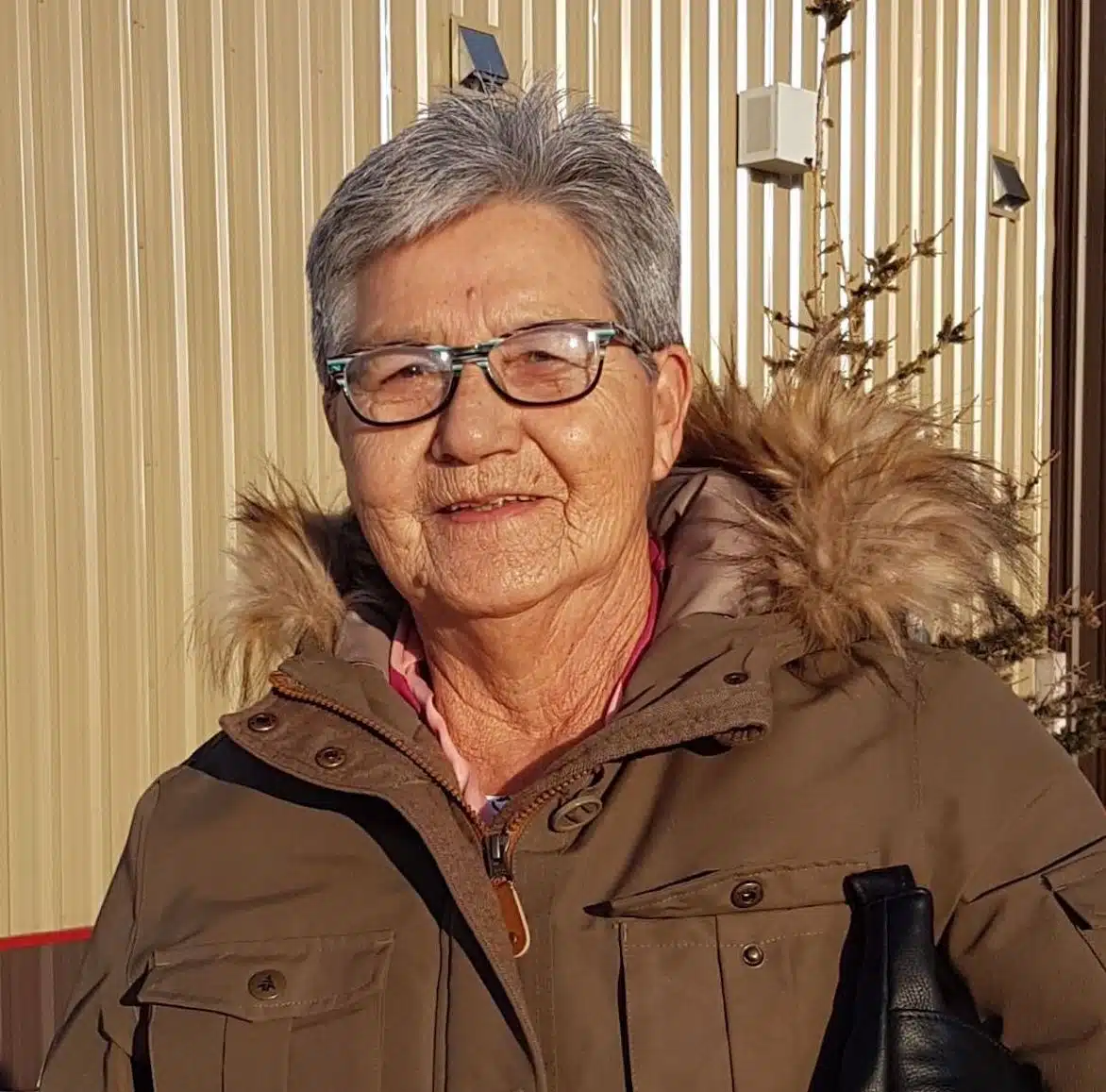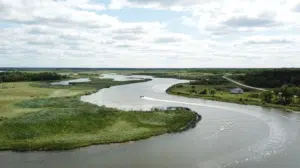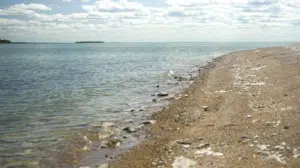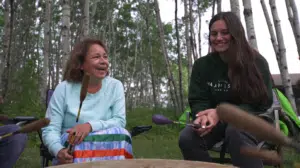
BY RILEY CHERVINSKI, COMMUNICATIONS AND EVENTS COORDINATOR, OCEAN PROGRAM, CPAWS MANITOBA
Dorothy L. Crate is a respected elder and member of Fisher River Cree Nation.
She has lived and worked in Fisher River for most of her life, learning the life of a fisherperson as a means of income for herself and her family. She spent more than 45 years on Lake Winnipeg, learning how to keep herself and her helpers safe as they went about their daily routines on the waters of Lake Winnipeg.
She believes learning how to read the weather, the wind, and the water is the key to understanding that nothing should be taken for granted. Keeping the land and waters clean is an important part of conservation, and she worries about the health of Lake Winnipeg.
“[We need to] leave it there for the next generation. I don’t know if that’s going to happen with where the environment is going. There are so many wicked storms out there,” she said in an interview with project manager Liz Murdock.
“You have got to respect the lake. You knew when there was a storm coming. You could just tell by the change of the current or you would see your flag starting to move a different way.”
By sharing her history and connection with the land, Dorothy is helping bring attention to the areas she’d like to see protected.
She is one of more than 20 elders and land users from Fisher River Cree Nation and Peguis First Nation interviewed as part of the engagement process for the Fisher River Cree Nation Conservation Areas Initiative.
The initiative aims to develop a conservation plan for the region to help support watershed management goals and spur sustainable economic development. You can learn more about the conservation process through the FRCN Conservation Areas website and even send a letter showing your support.
The lake and the shorelines are important to Dorothy, especially Kinwow Bay and Macbeth. She believes they should be kept clean with no garbage.
“You’ll leave it as you find it. That was the motto. And it should stay like that. Don’t take advantage of nothing, don’t wreck it, don’t destroy it,” she said.
Dorothy feels the pollution of the lake is a danger to the fishermen and fisherwomen of the lake. She has no tolerance for those who do not take the time to leave it as they found it, or make it better.
The Engagement Process
Input from Indigenous knowledge keepers, regional people, and local groups is being analyzed and a draft conservation proposal for the Fisher River Cree Nation Conservation Areas Initiative will be published in 2022.
The aim of the engagement process is to ensure that the voices and wishes of Manitobans—especially area residents, Indigenous peoples, local communities, and regional stakeholders—are considered when determining which areas should be conserved within the study area.
This initiative is led by Fisher River Cree Nation in partnership with Peguis First Nation and the Manitoba chapter of the Canadian Parks and Wilderness Society (CPAWS). The initiative has the support of the province of Manitoba and the government of Canada.
To let the Manitoba government know you support this initiative, send a letter of support now.



